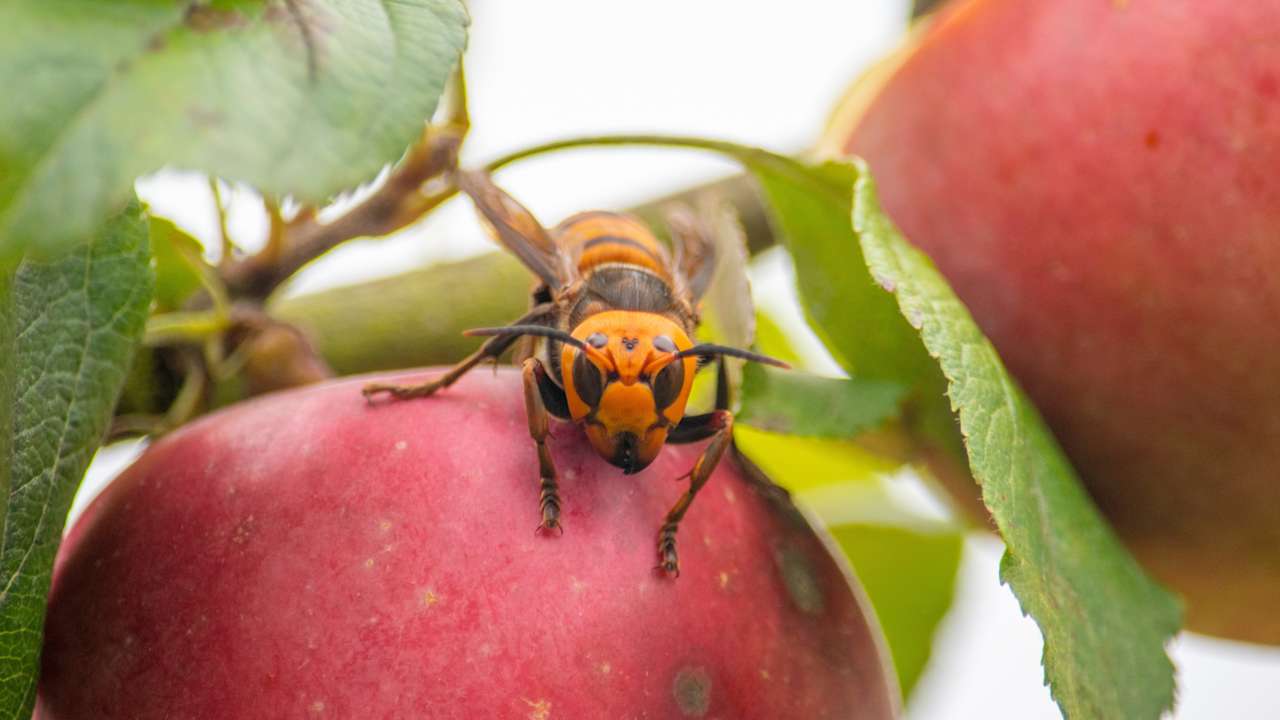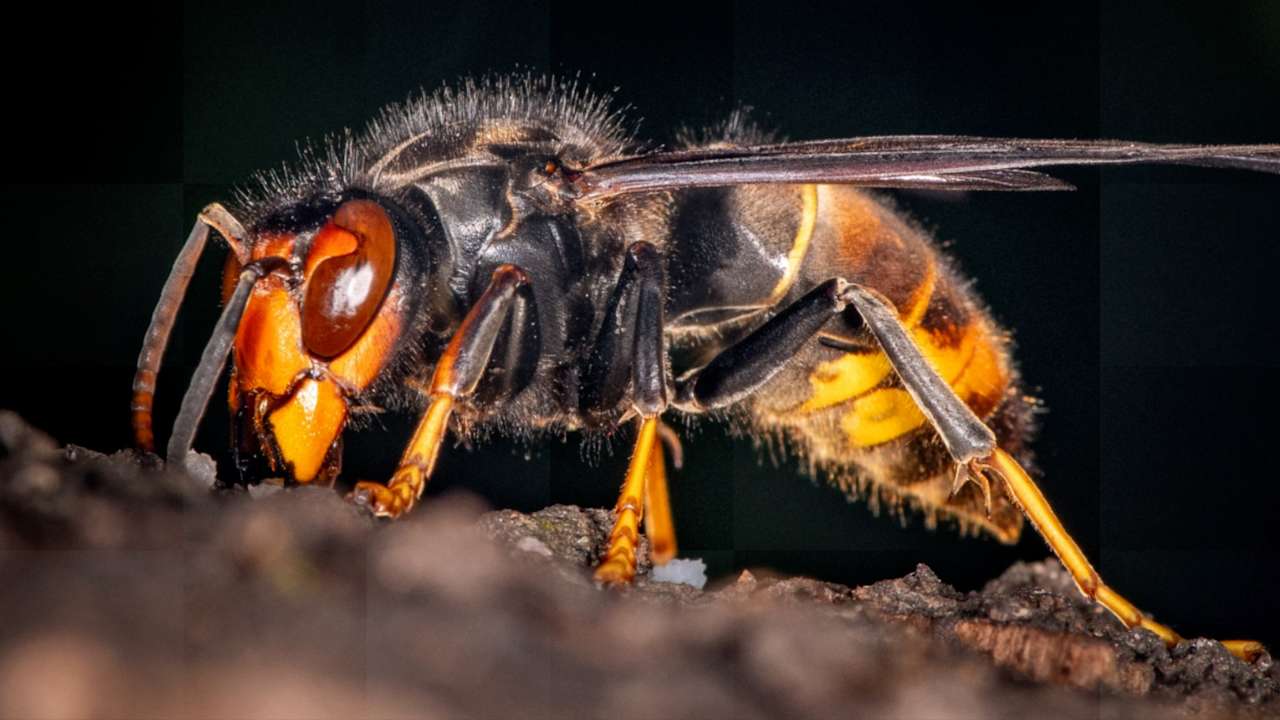The public are being warned to report sightings of Asian Hornets this summer as experts warn of a potential surge of the damaging invasive predatory wasp.
While Asian Hornets pose no greater risk to humans than native hornets, they threaten honey bees and insect pollinators.
The Environment Department (Defra) said the species is not established in the UK yet but early trapping is fundamental to eradication efforts.
The UK’s chief plant health officer, Nicola Spence, has called on beekeepers and the wider public to be vigilant to the presence of hornets after record sightings last year.
The Wildlife and Countryside Link (WCL), which represents 83 nature organisations, warned that recent flooding and warming temperatures have increased the risk of problem species already in the UK growing and spreading.
This includes Japanese Knotweed, which can cause structural damage, Giant Hogweed, with sap that can cause burns to skin, and Himalayan Balsam, which out-competes native species and increases flood risks.
What is an Asian Hornet?
- Asian hornets are smaller than their European relatives but still have a nasty sting. You can identify them by their yellow legs, orange face and dark abdomen with single yellow stripe.
- It’s believed the came to France onboard a shipment of pottery from China.
- They are an apex predator and each hornet can kill up to 50 insects including bees and wasps.
- There have been 102 sightings of Asian Hornets in the UK since 2016 – the highest numbers were recorded last year.
The WCL said the volatile conditions have also increased the risk of new species establishing themselves in the UK, like the Red Imported Fire Ant, Chinese Mitten Crab and Chinese Mystery Snail, which are making their way across Europe.
Richard Benwell, WCL chief executive, said: “Invasive species are already one of the biggest threats to the UK environment, from smothering waterways to outcompeting native species.
“They also cause billions of pounds in damage a year to homes and businesses, and even pose risks to human health.
Environment groups are calling for the annual invasive species biosecurity budget to triple to £3 million with a further £3 million to fund a permanent dedicated invasive species Inspectorate.
They are also calling for long-term government funding for Local Action Groups (LAGs) to create a biosecurity “citizens army”, as recommended by the Environmental Audit Committee.

Defra said members of the public can report any sightings of the Asian Hornet, which have very dark bodies, a wide orange stripe on the forth abdomen section and yellow leg ends, via the Asian Hornet Watch App.
It added that the National Bee Unit stands ready to respond quickly and effectively to any further possible sightings after attending every credible report last year and destroying 72 nests in 56 locations – mostly in Kent.
Responding to WCL’s recommendations, a Defra spokesperson said: “Invasive species threaten our native biodiversity and cost the economy billions every year, which is why we support the Invasive Species Inspectorate in carrying out their role to protect the nation’s biosecurity.
“Through our Invasive Non-Native Species Strategy, we remain committed to going even further to detect, protect and eradicate the threats they pose, while increasing co-ordination and co-operation with the public, land managers and businesses to deliver this.”
Follow STV News on WhatsApp
Scan the QR code on your mobile device for all the latest news from around the country





























